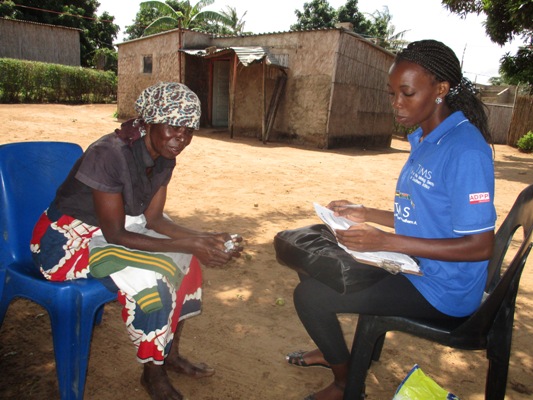- About
- Topics
- Picks
- Audio
- Story
- In-Depth
- Opinion
- News
- Donate
- Signup for our newsletterOur Editors' Best Picks.Send
Read, Debate: Engage.
| September 01, 2017 | |
|---|---|
| topic: | Women's rights |
| tags: | #Uganda, #female condoms, #contraceptives, #HIV/AIDS, #Africa, #women's rights |
| located: | Uganda |
| by: | Bob Koigi |
Only last year, the government spent $600,000 to procure 1.2 million condoms with another estimated 3 million condoms set to be purchased this year according to Uganda Health Marketing Group a government body that distributes contraceptives. But the procured condoms remain in stores and government warehouses with uptake being dismally low. According to a study by the Ministry of Health earlier this year on use of female condoms in select districts, a paltry 2 per cent of women requested the condoms. This even as demand for male condoms being at an all-time high. In fact this year alone, reports indicate a shortage of 150 million male condoms. Interestingly even women prefer their men using condoms compared to them embracing femdom, the female condom. This, even as prevalence of HIV/ Aids remains 3 per cent higher for women than men.
Susan Ekellot, a community health worker in Uganda’s capital Kampala has been involved in the distribution of female condoms since 2014. She says while many factors are at play as the reason for women rejecting them, a key turn off for them is how cumbersome and uncomfortable they feel when wearing them. “Most of the women out-rightly tell us that they don’t want anything to do with the condoms and they would rather have unprotected sex than use them. They argue that it is tedious to hold them through coitus and they never enjoy the act. Others say some of the female condoms are too noisy and distract them,” Susan said.
The female condom is one of a wide variety of contraceptives used in Uganda alongside implants and injectable contraceptives. But it still remains the least popular. Women who engage in unprotected sex say they use pills as contraceptives to stop pregnancies. They would rather contract HIV and AIDS that get pregnant, arguing they can handle the virus. “Again for sex workers - the majority of whom are pushed into the trade by poverty - prefer unprotected sex because it pays more. A client will offer $20 for sex using a condom but increases the price to $70 for unprotected sex. The call girls will always go for the higher price because they are in business,” Susan further said.
Doctors have also expressed concern at the misuse of femdoms with those who are given free of charge cutting out the condom rings and using them as bracelets. “It is quite heartbreaking to find women who this contraceptive is meant for wearing dozen of female condom rings in their hands and proudly displaying them. It is a major blow to the fight against the HIV scourge,” said Purity Kabiite a nurse at St. Francis Hospital – Nsambya Kampala.
Health experts argue that though the uptake is slow and discouraging it is following a path as is the case with any alien concept or product introduced anywhere. The skepticism they argue only needs to be addressed by conducting more trainings - not just on condoms as contraceptives but as an empowerment tools for women. “We are talking about a rather new phenomenon in the African setting and the reaction from women and society is expected. It is the same curve the male condoms underwent. But it needs to be an accepted product for our women so a lot of training is needed to help them warm up to the idea,” said Dr. Arthur Isingoma from Makerere University College of Health Science.
The experts, however, argue that the adoption needs to happen fast if the country is to remain ahead of the scourge to avoid defeating the numerous gains it has made in taming its spread. “The government needs to approach this from a holistic point of view. It needs to explain to the people why it is distributing these condoms and why it matters especially to women to have condoms. Otherwise by just distributing them without explaining exhaustively the reason behind it creates all manner of speculations,” added Dr. Isingoma.
By copying the embed code below, you agree to adhere to our republishing guidelines.
